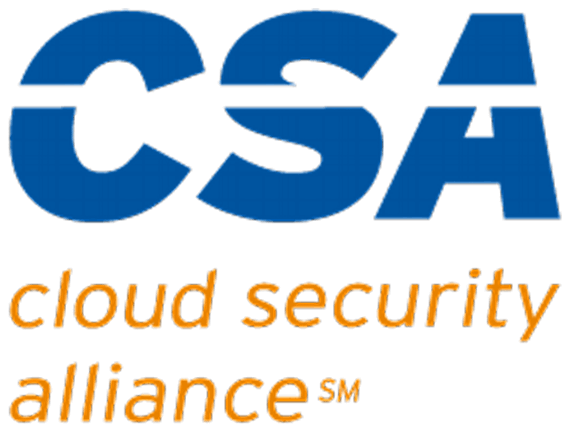Importance of IT Support for Businesses
IT support is crucial for businesses to keep their operations running smoothly around the clock. Here’s why:
- Minimizes Downtime: IT support helps to quickly resolve any technical issues that may arise, preventing prolonged downtime that can disrupt business activities.
- Enhances Security: IT support ensures your business is equipped with the necessary security measures to protect data and systems from cyber threats.
- Boosts Productivity: By providing timely technical assistance, IT support enables employees to work efficiently without being hindered by IT-related issues.
- Facilitates Business Growth: Reliable IT support allows businesses to scale operations without facing IT bottlenecks or infrastructure limitations.
Overall, investing in IT support is essential for businesses to maintain optimal performance and secure their IT infrastructure.

Common IT Support Issues Faced by Businesses
Businesses often encounter common IT support issues that can disrupt operations. Network connectivity problems are a frequent issue, impacting the ability to access the Internet or internal systems. Hardware failures, such as computers or servers breaking down, can also halt productivity. Software glitches, like crashes or errors, can hinder workflow. Security breaches pose a significant threat, risking data loss or unauthorized access. Backup failures can lead to critical data loss in case of system failures. Dealing with these issues promptly is crucial to maintaining seamless operations.
Benefits of 24/7 IT Support
24/7 IT support ensures that your business can address issues anytime, minimizing downtimes that could impact productivity and revenue. Key benefits include immediate technical assistance, faster problem resolution, and proactive monitoring to prevent potential system failures. Having round-the-clock support also means that your business can operate smoothly even outside regular working hours.
Strategies for Efficient IT Support Management
Efficient IT support management is crucial for keeping your business technology running smoothly around the clock. Here are some key strategies to help you achieve this:
- Implement proactive monitoring: Regularly monitor your systems to catch issues before they become critical. This can help prevent downtime and keep your business operations running smoothly.
- Invest in training for your IT team: Ensure your IT team is well-trained and up-to-date on the latest technologies and best practices. This will help them resolve issues quickly and efficiently.
- Utilize ticketing systems: Implement a ticketing system to prioritize and track IT support requests. This can help streamline the support process and ensure that all issues are addressed in a timely manner.
- Regularly update software and hardware: Keep your software and hardware up-to-date to prevent security vulnerabilities and performance issues. Regular updates can help maintain the efficiency of your IT systems.
Outsourcing vs. In-house IT Support
Outsourcing your IT support means hiring a third-party company to manage your tech needs. On the flip side, in-house IT support involves having your own team within your company. Here are some points to consider:
Outsourcing:
- Pros: Cost-effective, access to specialized expertise, round-the-clock support.
- Cons: Communication challenges, potential security risks, less control.
In-house:
- Pros: Direct oversight, tailored solutions, aligns with company culture.
Cons: Higher costs, limited scalability, recruitment, and training efforts.
Deciding between the two depends on factors like budget, tech requirements, and the level of control you prefer.
Implementing IT Support Best Practices
Implementing IT support best practices is crucial for keeping your business running smoothly around the clock. By following these practices, you can ensure that your IT systems are well-maintained and operating efficiently. Here are some key tips to help you implement IT support best practices:
- Regularly update software and systems to prevent security vulnerabilities.
- Provide training to employees on IT security awareness.
- Establish a system for monitoring and addressing IT issues promptly.
- Back up important data regularly to prevent data loss.
- Create a disaster recovery plan to ensure business continuity in case of emergencies.
By incorporating these best practices into your IT support strategy, you can minimize downtime, enhance productivity, and safeguard your business’s digital assets.
IT Support Tools and Technologies
In the world of IT support, having the right tools and technologies can make a huge difference in how smoothly your business runs. Utilizing remote monitoring software allows IT professionals to keep an eye on systems and identify issues before they become major problems. Ticketing systems streamline communication and issue resolution, ensuring nothing slips through the cracks. Network monitoring tools help to manage and optimize network performance, keeping everything running smoothly. Antivirus software is crucial for protecting against cyber threats and ensuring the security of your systems. Regular data backups are essential in emergencies, preventing data loss and downtime. Utilizing these tools and technologies effectively allows your business to operate smoothly 24⁄7 without hiccups.
Ensuring Data Security with IT Support
To ensure data security with IT support, it is crucial to have robust security measures in place. This includes implementing firewalls, antivirus software, and data encryption. Regular backups of important data are vital in case of any unexpected incidents. Additionally, employee training on cybersecurity best practices is essential to prevent breaches. Integrating multi-factor authentication adds an extra layer of security to your systems. Remember, data security should be a top priority for your business to operate smoothly 24⁄7.
Proactive Maintenance and Monitoring
Proactive maintenance and monitoring are essential for keeping your IT systems running smoothly 24⁄7. Regularly checking and fixing issues before they escalate can prevent costly downtime and keep your business operations efficient. Monitoring your systems continuously allows you to identify potential problems early on, ensuring your IT infrastructure remains stable and secure. Regular maintenance tasks, such as software updates and hardware checks, help to prevent unexpected failures and keep your technology functioning optimally. Prioritizing proactive measures will save you time and money and give you peace of mind knowing that your IT support is always one step ahead.
Conclusion: Enhancing Business Operations with Reliable IT Support
Reliable IT support is essential for keeping your business operations running smoothly around the clock. With 24⁄7 support, you can ensure that any technical issues are addressed promptly, minimizing downtime and maximizing productivity. Investing in a dependable IT support system allows you to focus on growing your business without worrying about technology hiccups.




